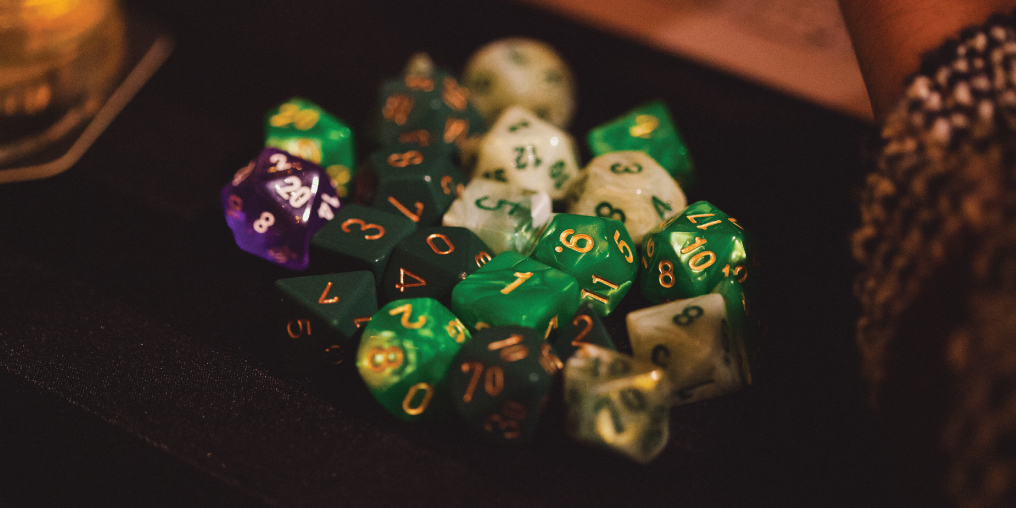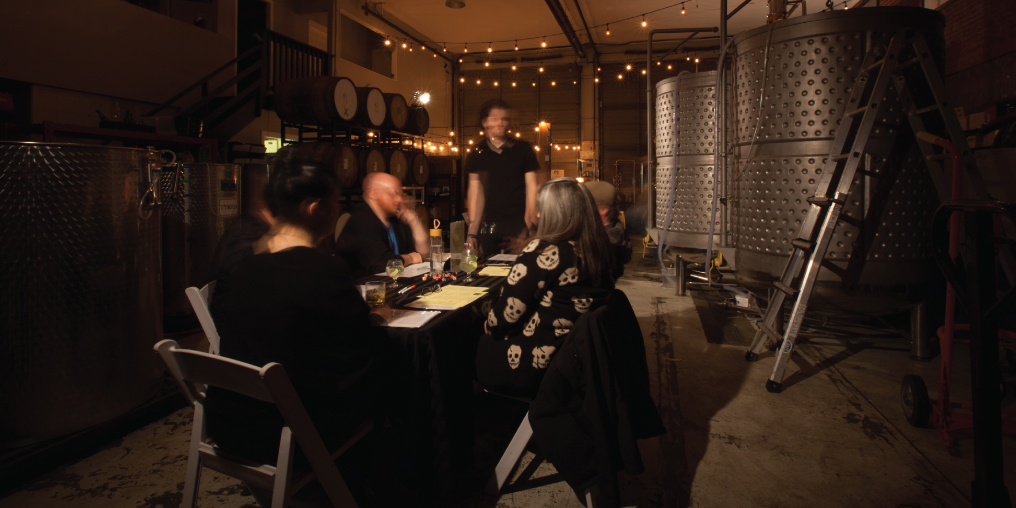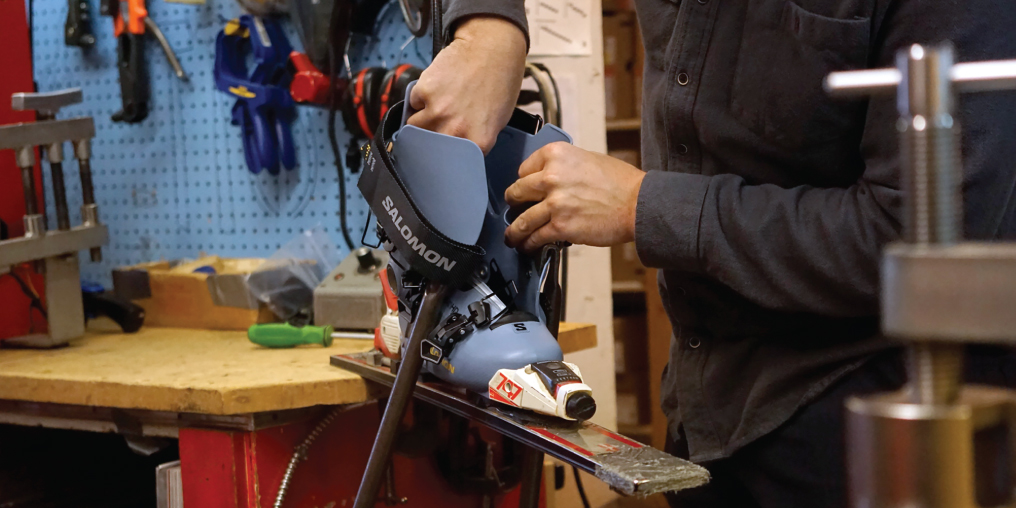You have been stuck on the glacier for three days and whatever has been stalking you is closing in. Night is falling, the sky promises another rough night, your phones are getting no signal, and Derek, your hiking partner, has just twisted his ankle severely.
You must decide: do you leave Derek with what meagre supplies you have and go find help? Or do you stick together, set up camp, and hope that thing doesn’t find you?
What do you do?
We “roleplay” all the time. In everyday life you are constantly playing the role people expect of you or that you feel is best suited for the given situation.
Now take that concept and gamify it: create a plot in whichever real or fictitious world you like, throw some rules into the mix (to limit, enhance, or adjudicate the story), and bring some friends. You tell each other how this tale of intrigue would unfold based on your actions (or inactions), watching as the story grows; et voilà! You have a fun roleplaying game.
In a nutshell, roleplaying is a collective storytelling experience between you and your friends. It could last for two hours, or it could last for thirty-five years like a group’s game did (and is still doing!) in London, Ontario.
Roleplaying games (RPGs) are a form of “playing pretend” where you get to perform daring acts, make difficult (sometimes life-or-death) calls, and do or say outlandish things in the safety of the realm of make-believe. You call the shots: slay the knight, save the dragon princess, whatever you want to do. It is a game without bounds that you can play so long as you have a friend or two and some creativity.
Not only is roleplay fun, but it can also be beneficial. People like Dr. Megan Connell, PsyD, of Charlotte, NC, who refers to herself as a “Therapeutic Dungeon Master,” are pioneering the use of RPGs to treat PTSD and provide therapy for children on the autism spectrum.

RPGs’ non-judgmental methods of portraying your character exactly how you want can help trans people and those who are interested in exploring the gender spectrum “test the waters” of their appropriate gender to see how it feels, sometimes long before they come out. It is also being used for empowering young women to learn communication, problem-solving, and leadership skills through a project initiated by Ethan Schoonover, a former high school teacher in Seattle, WA.
In the Comox Valley there are several shops to purchase dice, manuals, and adventure modules, and local online communities where you can find like-minded folks to get your adventuring parties together.
There’s also Wayward Distillery’s “D&D & G&Ts” night on the last Friday of each month, which welcomes beginners and those experienced in the hobby alike. They supply the dice, characters, and adventure; you just need yourself, some friends (or come alone), and some imagination.
The people who run the games nights are veteran players of several rules systems, with 40+ years of experience playing RPGs, and are the creative driving force behind Forbidden Plateau Entertainment, an RPG publishing company situated in the Comox Valley.
So, back to the scenario painted at the beginning of this article: you’re being stalked by some creature out on the glacier. Derek is slowing you down. Night is falling and a blizzard is blowing in. You can leave Derek to his fate, travel faster down the slope alone to pick up cellular reception, and call for help. Or, you can weather the storm with Derek and hope whatever is out there doesn’t find your tent.
What do you do?





